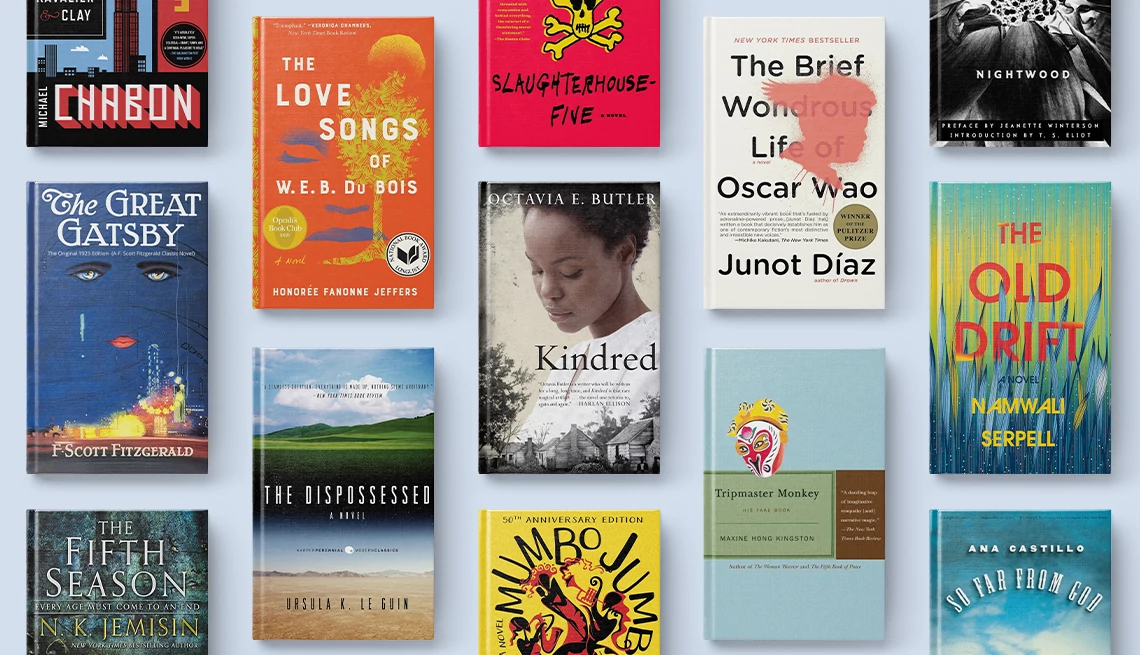AARP Hearing Center


If you decide, as The Atlantic did, to compile a list of the great American novels from the past century, you’re going to face a few challenges. One, what does “great” mean? Does it mean the most interesting, most influential, most beautifully written or some hard-to-define combination of all that?
And how in the world do you choose the best among millions of interesting, influential and/or beautifully written American reads published from 1924 onward?
It was complicated, admits senior editor Gal Beckerman: “When this came up as an idea, I did not relish the idea of sitting in a room, staring at a wall and deciding [what would make the list], because I have not read enough to be able to do that with any kind of authority.”
Instead, the editors consulted a few dozen book experts, including novelists, American literature professors and critics, and asked them each to offer their top five picks. Then, Beckerman says, “we sort of threw all of those suggestions into one big list and started adding and filling in the gaps.”
In an introduction to the list, published March 14, the editors note, “Our goal was to single out those classics that stand the test of time, but also to make the case for the unexpected, the unfairly forgotten, and the recently published works that already feel indelible.”
There were spirited debates, according to Beckerman: “I remember a particular fight in the office about John Updike, and which of his books would be on there, by somebody who is very much a John Updike superfan [and] was not happy with our choice [Couples, 1968].”
He says he personally pushed for Biography of X by Catherine Lacey, a wildly inventive 2023 novel focused on a woman (C.M.) who sets out to write the life story of her performance-artist wife (X) after her sudden death. Described as “a major novel, and a notably audacious one” by The New York Times, it’s included because “there’s something to the experimentation in that book and to the way it captured the fluidity that exists in the moment when it comes to the way we think about our identities. I thought this is really a book that I can imagine people turning to again and again.”
The final group of 136 books includes what are arguably already modern classics, such as A Visit From the Goon Squad by Jennifer Egan (2010), Americanah by Chimamanda Ngozi Adichie (2013) and Fates and Furies by Lauren Groff (2015).































.jpg?crop=true&anchor=13,195&q=80&color=ffffffff&u=lywnjt&w=2008&h=1154)































More From AARP
Fashion Influencer Lyn Slater, 70, Knows ‘How to Be Old’
Her new book encourages later-in-life reinvention and embracing aging with style and joyBooks Preview: 28 of Spring’s Top Reads
David Baldacci, Stephen King, Salman Rushdie, Tana French, Erik Larson and more authors with new releases this season
What to Read This Month and Other Book News
A brilliant new take on a Mark Twain classic, Neil Gaiman sells his stuff, and Gabriel García Márquez resurfaces
Recommended for You